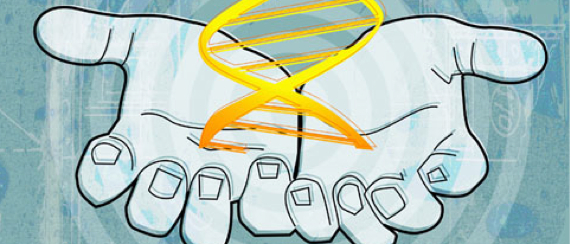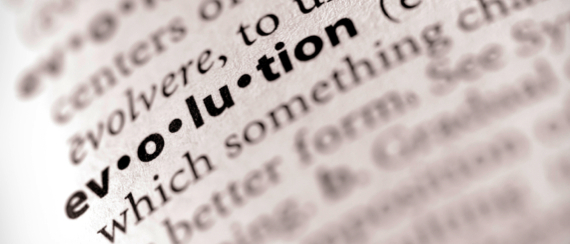
The University of Chicago biologist Jerry Coyne recently objected to the suggestion that humans might actually be a part of God’s creative plan. Like most of the so-called “new atheists,” he denounces the idea that evolution — all by its lonesome, blind, purposeless, unguided self — would ever find its way to such an improbably unique species as human beings by any route other than a series of random accidents. And, were the process to be restarted, the accidents would never line up to produce creatures like us a second time.
Although we know a lot more than we used to about evolution, I don’t see how we can have any certainty whatsoever about what kinds of things evolution might or might not be able to do. It was not long ago we thought 100,000 genes were required to make a human being, and now we know it can be done with approximately 20,000, or roughly the same number as rice and sea urchins. There is a lot we still don’t know about
how evolution works, but this is not the point I want to make, for I have no desire to hide inside the shadowy corners of science and hope that they are never illuminated by the light of scientific progress.
Coyne’s objections are really just the traditional objections to belief in God repackaged as scientific objections. Traditional theism — which is the foundation for a majority of people’s worldviews, including scientists — is a richer and more complex
version of reality than materialism. As a theist with a deep respect for science, I believe in all the same remarkable laws and particles that undergird the worldviews of scientists. But I also believe this reality is rooted in the creative and sustaining activity of God. God can act in the world and provide a larger understanding of the way things are.
Theists have both God and science as important parts of their reality. But many Americans reject particular scientific ideas like evolution or the big bang theory because they think they are incompatible with belief in God. The BioLogos Foundation is committed to helping religious people make peace with such scientific ideas, a project Coyne describes as a “hilarious goldmine of accomodationism.”
But what about the accommodationism of materialists? How do they reconcile their
materialism with the rationality of the world? It seems to me reality has to be grounded in one of two deeply mysterious foundations: God or matter. Each has its own set of questions. Theists wonder about the nature of God’s existence, the problem of evil, how and why God acts in the world and why God has chosen to remain hidden from us. These are difficult questions and certainly must trouble thoughtful believers. But don’t materialists have another set of mysteries? Don’t they have to wonder about the nature of physical existence? Why is there something rather than nothing? Why are the laws of nature so rational? Why is our species so religious? Is the world just a big pointless accident?
In Coyne’s excellent book, Why Evolution is True, he suggests we can “make our own purposes, meaning, and morality.” I know I am not alone when I say I am not entirely satisfied with this. I think the materialists have their own accommodationist project to work on, and I suspect it may turn out to be even more hilarious than ours.
Karl Giberson is executive vice president of The BioLogos Foundation and director of the Forum on Faith and Science at Gordon College in Wenham, Mass.

